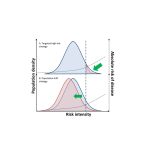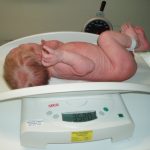By Eirini Trichia, University of Cambridge and Nita Forouhi, University of Cambridge A new study, published recently in the European Journal of Epidemiology, appeared to give dairy products a clean […]
Opinion: Increasing community weight loss programme commissioning won’t be cheap, but could pay dividends
Community weight loss programmes, such as Weight Watchers, are effective at helping people to lose weight, our latest research shows. We found that a three-month programme helps people lose weight, […]
Opinion: Studying change in behaviour and body weight over time has increased our understanding of the causes and possibilities for prevention of type 2 diabetes
By Adina L. Feldman, MRC Epidemiology Unit, University of Cambridge Type 2 diabetes is a global health issue affecting 414 million adults world-wide.1 Although the number of people being newly […]
Understanding the health benefits of the ‘sugar tax’: how will the soft drinks industry respond?
Originally posted on the Fuse Open Science Blog, Dr Oliver Mytton, looks at the potential health benefits of the Soft Drinks Industry Levy and how the soft drinks industry might respond […]
Opinion: A fresh insight into the links between birth weight and later life disease
For many years, studies have been reported that birth weight can leave patterns of higher or lower risk for diabetes and heart disease in later life 1. But we have […]
Opinion: A varied diet can prevent diabetes – but can you afford it?
Annalijn I Conklin, University of California, Los Angeles; Nita Forouhi, University of Cambridge, and Pablo Monsivais, University of Cambridge In a study of over 25,000 adults with detailed information about […]
Local takeaways create a double burden for obesity
Thomas Burgoine, University of Cambridge and Pablo Monsivais, University of Cambridge People in the UK are spending more than ever on takeaway food and there’s good reason to believe that […]
How we discovered that genes could influence the age when you first have sex
As far as big life decisions go, choosing when to lose your virginity or the best time start a family are probably right up there for most people. It may […]
Opinion: It’s time to change the way we think about changing what people eat
The Chancellor’s recent announcement about a tax on sugary drinks is a step in the right direction towards fighting obesity, but we will need to use lot of different approaches […]
Opinion: Obesity: stop accusing the poor of making bad choices
Pablo Monsivais, University of Cambridge Last month, the UK health secretary, Jeremy Hunt, called childhood obesity “a national emergency”, but the government has once again delayed publishing its strategy aimed […]

 MRC Epidemiology Unit
MRC Epidemiology Unit







